
猎人笔记(赠英文版)/双语译林壹力文库
正版现货 可开具图书发票 下单后当天即可发货
¥ 24.13 5.2折 ¥ 46 全新
库存6件
作者(俄罗斯)伊万·屠格涅夫|译者:张耳
出版社译林
ISBN9787544746441
出版时间2015-03
装帧其他
开本其他
定价46元
货号3118007
上书时间2024-10-19
- 在售商品 暂无
- 平均发货时间 4小时
- 好评率 暂无
- 店主推荐
- 最新上架
商品详情
- 品相描述:全新
- 商品描述
-
导语摘要
《猎人笔记》是伊万·屠格涅夫的第一部现实主义巨作,在屠格涅夫的创作中占有极其重要的地位。
《猎人笔记》是一本形式独特的特写集。里面的作品像是以散文手法写成的小说。这本书是以第一人称写成的。通过写“我(猎人)”到各个地方去打猎时所遇到的各种各样的情景,反映了俄国当时的社会生活。其中写到了善良的农民、受欺凌的农奴、落魄的小地主,还写了冷酷无情的贵族地主。作者在书中表达了他对农奴制的痛恨和批判,并指出是农奴制使广大的农奴和农民陷入悲惨的生活境地。作者对农民和农奴表示出深切的同情,同时也对那些高傲而自私的贵族地主给予无情的嘲讽和鞭挞。
作者简介
伊万·屠格涅夫(1818-1883年),19世纪俄国杰出的现实主义作家。从1834年起发表处女作诗剧《斯捷诺》到临终前发表《散文诗》止,在半个世纪里,屠格涅夫以诗歌、剧本、小说、特写、书信等文学体裁写下了数十卷著作,描绘了俄罗斯整整一个时代的社会生活,构成了19世纪40至70年代俄国封建农奴制社会向资本主义社会过渡期的一部独特的文学艺术编年史,为俄国文学和世界文学做出了杰出的贡献。其主要作品有《猎人笔记》、《贵族之家》、《罗亭》、《前夜》、《父与子》等。
目录
中文版
译本序……………………………………………………………… 1
霍里和卡利内奇…………………………………………………… 1
叶尔莫莱和磨坊老板娘……………………………………………13
莓 泉………………………………………………………………25
县城的大夫…………………………………………………………35
我的邻里拉季洛夫…………………………………………………44
独院地主奥夫夏尼科夫……………………………………………52
利戈夫村……………………………………………………………70
别任草地……………………………………………………………82
美丽的梅恰河畔的卡西扬……………………………………… 103
总 管…………………………………………………………… 122
办事处…………………………………………………………… 136
孤 狼…………………………………………………………… 155
两地主…………………………………………………………… 164
列别江…………………………………………………………… 173
塔季雅娜?鲍里索夫娜和她的侄儿…………………………… 186
死………………………………………………………………… 199
歌 手…………………………………………………………… 212
彼得?彼得罗维奇?卡拉塔叶夫……………………………… 229
幽 会…………………………………………………………… 245
希格雷县的哈姆莱特…………………………………………… 254
切尔托普哈诺夫和涅多皮尤斯金……………………………… 278
切尔托普哈诺夫的末路………………………………………… 296
枯萎了的女人…………………………………………………… 331
车轱辘响………………………………………………………… 345
树林和草原……………………………………………………… 360
英文版
I Hor and Kalinitch… ……………………………………… 1
II Yermola? and the Miller’s Wife… …………………………14
III Raspberry Spring… ………………………………………26
IV The District Doctor…………………………………………36
V My Neighbour Radilov… …………………………………46
VI The Peasant Proprietor Ovsyanikov… ……………………54
VII Lgov… ……………………………………………………73
VIII Byezhin Prairie… …………………………………………85
IX Kassyan of Fair Springs………………………………… 106
X The Agent… …………………………………………… 126
XI The Counting-House… ………………………………… 140
XII Biryuk…………………………………………………… 158
XIII Two Country Gentlemen………………………………… 167
XIV Lebedyan………………………………………………… 176
XV Tatyana Borissovna and Her Nephew…………………… 189
XVI Death… ………………………………………………… 201
XVII The Singers……………………………………………… 214
XVIII Piotr Petrovitch Karataev… …………………………… 232
XIX The Tryst………………………………………………… 247
XX The Hamlet of the Shtchigri District… ………………… 256
XXI Tchertop-Hanov and Nedopyuskin……………………… 281
XXII The End of Tchertop-Hanov… ………………………… 300
XXIII A Living Relic…………………………………………… 335
XXIV The Rattling of Wheels… ……………………………… 348
EPILOGUE The Forest and the Steppe… …………………………… 363
死
我有一个邻里,是一个年轻的地主,也是一个喜好打猎的年轻人。在七月里的一个晴朗的早晨,我骑着马去找他,约他一同去猎松鸡。他答应了。“不过,”他说,“咱们就顺着我家那片小树林去到祖沙;我要顺便去瞧一瞧恰普雷吉诺;您知道我的那个橡树林吧?我正让人在那边伐树呢。”“那就去吧。”他便吩咐备马。他穿上一件带野猪头像的铜纽扣的绿外衣,带上一个粗毛线猎袋和一个银水壶,扛上一只崭新的法国猎枪,得意地照了一通镜子,唤了一声自己的猎狗埃斯佩兰斯,这只狗是他的表姐、一个有好心肠而没有头发的老姑娘赠给他的。我们一起动身了。我这位邻里还带上两个跟班的,一个是甲长阿尔希普,是个矮矮胖胖的庄稼人,长着一张四方脸,颧骨特高;另一个是前不久从波罗的海沿岸省份雇来的管家戈特利勃? 丰- 德尔-科克先生,他是个近二十岁的青年人,身材瘦削,浅黄头发,高度近视眼,溜肩,长脖。这位邻里是新近才掌管这块领地的。这是他的一位伯母留给他的遗产。那伯母就是五品文官夫人卡尔东? 卡塔耶娃,是个胖得出奇的女人,即使躺在床上,也难受得哎哟哎哟个没完。我们骑着马进入了小树林。“你们在这里空地上等我一会儿。”我的邻里阿尔达利翁?米海雷奇对自己的两个同伴说。那德国人鞠下躬,就下了马,从衣袋里掏出一本小书,似乎是约翰?叔本华的小说,在一丛灌木旁坐了下来;阿尔希普仍待在太阳光下,木然不动地待了一个小时。我们在灌木丛里转来转去,连一窝野禽也没有找到。阿尔达利翁? 米海雷奇表示想到大树林去。那一天我自己都不相信会有什么好收获,也就勉强跟着他去了。我们回到了那块空地上。德国人标了一下书页,站起身来,把书放回衣袋,费劲地骑上了他那匹淘汰下来的短尾巴母马,这匹马只要稍稍一碰就要乱叫乱踢的;阿尔希普振了振精神,一下拽动两根缰绳,夹了夹两腿,终于使他那匹受惊的、被压得够呛的小马跑动起来。我们又动身了。
阿尔达利翁? 米海雷奇的这片林子我从小便很熟悉。那时候我和我的那位极为善良的法国家庭教师德齐雷? 弗勒利先生(可他每天晚上老让我喝列鲁阿药水,差点儿永远毁了我的健康)经常到恰普雷吉诺树林里游玩。这整片林子大约有两三百棵粗大的橡树和梣树。它们挺拔而粗壮的树干在榛树和花楸树的金灿灿、亮晶晶的绿叶中黑乎乎地屹立着,非常之美;树干高高地耸起,齐整地呈现在明朗的蓝空中,展开如帐篷般的宽阔而多节的枝丫;鹞鹰、青鹰、红隼在静止不动的树梢下飞来飞去,鸣声不绝,五颜六色的啄木鸟使劲地啄着厚实的树皮;随着黄鹂的婉转的鸣声,突然在茂密的枝叶中响起了黑鸫的嘹亮鸣声;在下面的灌木丛里,知更鸟、黄雀和柳莺啾啾地啼唱着;燕雀在小径上敏捷地跑来跑去;雪兔小心地“一拐一拐地走着”,顺着林边悄悄前进;红褐色的松鼠淘气地从一棵树跳到另一棵上,突然坐了下来,把尾巴翘到头顶上。在草丛里,在高高的蚁蛭旁,在蕨类植物美丽如雕的叶子的淡影下,紫罗兰和铃兰在竞芳争妍,还长着红菇、乳菇、卷边乳菇、橡菇和红色蛤蟆菇;在草地里,在宽阔的灌木丛里,长着红艳艳的草莓……在林子里阴凉处何等舒坦呀!在最热的时候,在大中午,这儿就像夜间一般:寂静、芳香、清爽……我曾在恰普雷吉诺度过一段快乐的时光,所以,说真的,如今进到这片十分熟悉的树林,不免有些伤感。一八四年那个毁灭性的无雪的冬天,竟没有饶过我的老朋友——橡树和梣树;它们干枯了、光秃了,只有几处披着病弱的绿叶,它们悲哀地耸立在小树木的上空,那些小树木是来“接替它们的,可还接替不了”……还有一些下边长满叶子的树木,似乎带着责备和绝望的神情向上挺起自己缺乏生气的、折断了的树枝;另有一些树的叶子虽然不及昔日那么繁茂,却还相当浓密,从这些树叶中伸出一根根粗大、干枯的死枝;还有一些树的树皮已经脱落了;还有一些树完全倒下了,像死尸似的在地上腐烂着。谁能料到呢,在恰普雷吉诺树林里竟找不到一处阴凉的地方!我望着那些即将死去的树,心里想,你们也许感到羞愧和痛心吧?……我想起了柯尔卓夫的诗:
何处去了呀,
那高雅的谈吐,
那傲慢的劲头,
那皇家的气度?
如今安在呢,
那绿色的势头?……
Death
I have a neighbour, a young landowner and a young sportsman.One fine July morning I rode over to him with a proposition that we should go out grouse-shooting together. He agreed. ‘Only let’s go,’he said, ‘to my underwoods at Zusha; I can seize the opportunity to have a look at Tchapligino; you know my oakwood; they’re felling timber there.’ ‘By all means.’ He ordered his horse to be saddled, put on a green coat with bronze buttons, stamped with a boar’s head, a game-bag embroidered in crewels, and a silver flask, slung a newfangled French gun over his shoulder, turned himself about with some satisfaction before the looking-glass, and called his dog, Hope, a gift from his cousin, an old maid with an excellent heart, but no hair on her head. We started. My neighbour took with him the village constable, Arhip, a stout, squat peasant with a square face and jaws of antediluvian proportions, and an overseer he had recently hired from the Baltic provinces, a youth of nineteen, thin, flaxen-haired, and short-sighted,
with sloping shoulders and a long neck, Herr Gottlieb von der Kock.My neighbour had himself only recently come into the property. It had come to him by inheritance from an aunt, the widow of a councilor of state, Madame Kardon-Kataev, an excessively stout woman, who did nothing but lie in her bed, sighing and groaning. We reached the underwoods. ‘You wait for me here at the clearing,’ said Ardalion Mihalitch (my neighbour) addressing his companions. The German bowed, got off his horse, pulled a book out of his pocket — a novel of Johanna Schopenhauer’s, I fancy — and sat down under a bush; Arhip remained in the sun without stirring a muscle for an hour. We beat about among the bushes, but did not come on a single covey. Ardalion Mihalitch announced his intention of going on to the wood. I myself had no faith, somehow, in our luck that day; I, too, sauntered after him. We got back to the clearing. The German noted the page, got up, put the book in his pocket, and with some difficulty mounted his bob-tailed, broken-winded mare, who neighed and kicked at the slightest touch;Arhip shook himself, gave a tug at both reins at once, swung his legs,and at last succeeded in starting his torpid and dejected nag. We set off.
I had been familiar with Ardalion Mihalitch’s wood from my childhood. I had often strolled in Tchapligino with my French tutor,Monsieur Désiré Fleury, the kindest of men (who had, however, almost ruined my constitution for life by dosing me with Leroux’s mixture every evening). The whole wood consisted of some two or three hundred immense oaks and ash-trees. Their stately, powerful trunks were magnificently black against the transparent golden green of the nut bushes and mountain-ashes; higher up, their wide knotted branches stood out in graceful lines against the clear blue sky, unfolding into a tent overhead; hawks, honey-buzzards and kestrels flew whizzing under the motionless tree-tops; variegated wood-peckers tapped loudly on the stout bark; the blackbird’s bell-like trill was heard suddenly in the thick foliage, following on the ever-changing note of the gold-hammer; in the bushes below was the chirp and twitter of hedge-warblers, siskins, and peewits; finches ran swiftly along the paths; a hare would steal along the edge of the wood, halting cautiously as he ran; a squirrel would hop sporting from tree to tree, then suddenly sit still, with its tail over its head. In the grass among the high ant-hills under the delicate shade of the lovely, feathery, deep-indented bracken, were violets and lilies of the valley, and funguses, russet, yellow, brown, red and crimson; in the patches of grass among the spreading bushes red strawberries were to be found....And oh, the shade in the wood! In the most stifling heat, at mid-day, it was like night in the wood: such peace, such fragrance, such freshness....I had spent happy times in Tchapligino, and so, I must own,it was with melancholy feelings I entered the wood I knew so well. The ruinous, snowless winter of 1840 had not spared my old friends, the oaks and the ashes; withered, naked, covered here and there with sickly foliage, they struggled mournfully up above the young growth which‘took their place, but could never replace them.’
Some trees, still covered with leaves below, fling their lifeless,ruined branches upwards, as it were, in reproach and despair; in others,stout, dead, dry branches are thrust out of the midst of foliage still thick,though with none of the luxuriant abundance of old; others have fallen altogether, and lie rotting like corpses on the ground. And — who could have dreamed of this in former days? — there was no shade — no shade to be found anywhere in Tchapligino! ‘Ah,’ I thought, looking at
the dying trees: ‘isn’t it shameful and bitter for you?’...Koltsov’s lines recurred to me:
‘What has become
Of the mighty voices,
The haughty strength,
The royal pomp?
Where now is the
Wealth of green?...’
内容摘要
《猎人笔记》是屠格涅夫的成名作,是一部通过猎人的狩猎活动,记述十九世纪中叶俄罗斯农村生活的随笔集。随着屠格涅夫充满优美笔调的叙述,俄罗斯的大自然风光、俄罗斯人民的风俗习惯、地主对农民的欺凌、农民的善良淳朴和智慧,像一首首抒怀歌曲在我们面前缓缓流淌出来,汇成一部透着淡淡忧伤的交响诗。
相关推荐
-

猎人笔记(赠送英文版)
九品保定
¥ 25.00
-

猎人笔记(赠英文版)/双语译林壹力文库
全新广州
¥ 15.59
-

猎人笔记(赠英文版)/双语译林壹力文库
全新广州
¥ 16.19
-

猎人笔记(赠英文版)/双语译林壹力文库
全新嘉兴
¥ 20.50
-
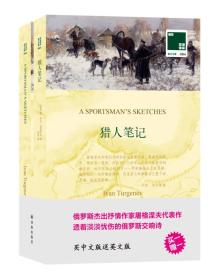
猎人笔记(赠英文版)/双语译林壹力文库
全新南京
¥ 30.36
-

猎人笔记(赠英文版)/双语译林壹力文库
全新嘉兴
¥ 17.09
-

猎人笔记(赠英文版)/双语译林壹力文库
全新广州
¥ 21.09
-

【正版】猎人笔记(赠英文版)/双语译林壹力文库
全新嘉兴
¥ 23.18
-

猎人笔记(赠英文版)/双语译林壹力文库9787544746441
全新广州
¥ 21.68
-
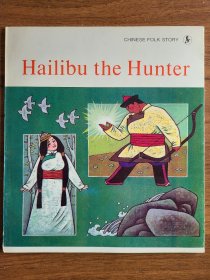
猎人海力布 英文版
九五品沈阳
¥ 80.00
— 没有更多了 —




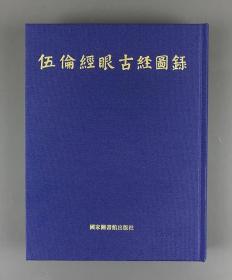
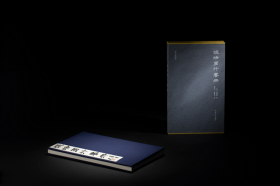
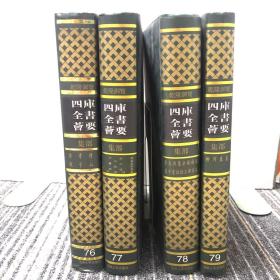

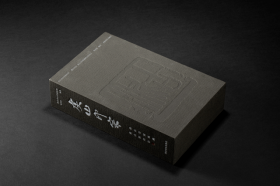
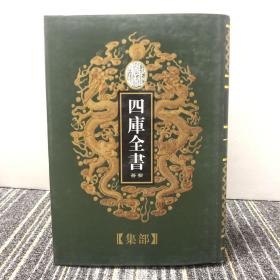











以下为对购买帮助不大的评价